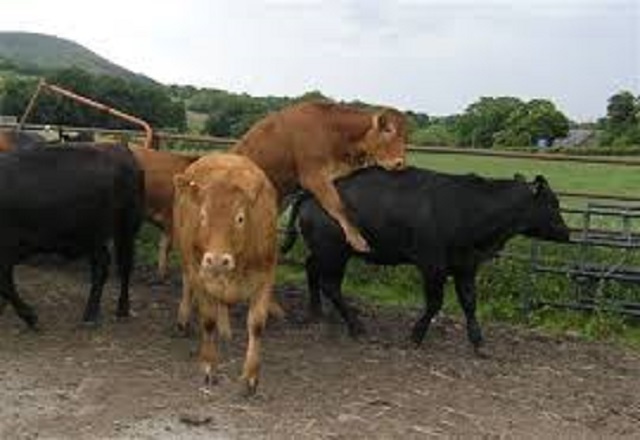
The Sunday News

Mhlupheki Dube
ONE of the most important but usually less tested parameters in a livestock production enterprise and more specifically beef production is the fertility of the herd. Fertility of the herd is tested through the bulls and or the cows. This is an important component which should help a farmer to eliminate passengers and therefore unnecessary liability from the herd.
Your bull(s) should be fertile enough to service your cows and make them conceive while your cows should be equally fertile for them to conceive.
However, many smallholder farmers never take time to do fertility tests or checks on their herds such that a cow can stay for some time without dropping a calf and with no accompanying remedial action.
Poor fertility in cows is usually caused by the following factors which every farmer should be on the lookout for.
It could be due to a reproductive disease such as vibriosis especially in bulls, leptospirosis and brucellosis.
It is therefore important to prevent such disease through vaccinations and be always on the guard for any incidences.
Often these diseases cause subtle signs with mild to no signs of the symptoms of the disease being exhibited.
They can have devastating effects on the number of cows that conceive, increase rates of abortion and can reduce production dramatically.
Often, their effect on the farm is only noticed when they have been controlled and production and profitability begin to rise.
Another factor which contributes to poor herd fertility is the occurrence of congenital causes of infertility.
These are inherited defects of the reproductive system and they include developmental abnormalities of the ovaries, oviducts, uterus, cervix and vulva.
Congenital conditions may also include cystic ovaries or corpus luteum cysts.
Such cysts interfere with the hormonal secretion mechanism and hence affect the whole reproductive circle. Another important factor which has a bearing on the fertility of your herd is the diet or nutrition that is available to the animals.
If the cows do not have enough energy provided by the diet then they won’t cycle and probably will show no or only brief bulling activity if they do.
They will not ovulate and this can be confirmed by a higher percentage of anoestrus ovaries if an inspection is conducted. If cows are not showing good bulling activity or not bulling at all this leads to increased calving intervals and affects your herd growth. Also some forage legumes which are generally recommended to give to animals to improve their diets have been shown to reduce fertility.
A diet which is high in some of the forage legumes has been shown to reduce ovarian activity. These factors which have been noted to cause fertility problems in your herd will result in high incidences of what are known as repeat breeders. These are cows that need to be serviced more than once for them to conceive.
These are the cows which you will see coming back on heat even though you saw them being serviced during the previous month. Repeat breeding can be caused by a number of factors, including sub-fertile bulls, endocrine problems, malnutrition, reproductive tract infections and poor management.
Another factor which can affect the fertility of your cow is its own physical condition. Does it not have physical problems which prevent it from being mounted? An example is a lame animal which may spend most of its time lying down because of physical pain somewhere which prevents it from standing and moving about. Such an animal will definitely not cycle and will therefore not be mounted. Factors could be many which contribute to low herd fertility but the majority of them can be controlled or avoided through proper and meticulous management of your herd.
Fertility of your herd should worry and concern you as this speaks directly to your pocket as the farmer. It says you are losing money through keeping unproductive animals and through time which is lost by extended inter-calving periods. It is therefore good management and prudent for every farmer to take keen interest in the fertility performance of his/her herd. This is one of those high priority issues on your herd management practices.
Uyabonga umntakaMaKhumalo.
Feedback [email protected]/ cell 0772851275



